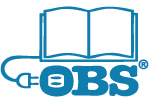The big news to come out of BookExpo America (BEA) in Chicago this month is the early sounds of a merger of the International Digital Publishing Forum (IDPF), managers of the publishing industry’s EPUB standard, and the World Wide Web Consortium (W3C), led by Sir Tim Berners-Lee (inventor of the World Wide Web) and CEO Jeffrey Jaffe, whose mission is to “develop open standards to ensure the long-term growth of the Web.” W3C’s Open Web Platform is “a collection of open (royalty-free) technologies which enables the Web” and allows for all types of digital content to become freely accessible across diverse devices and platforms. Thus W3C’s merger with IDPF’s EPUB standard may actually redefine the EPUB file format itself, in the context of Open Access technology. We at Open Book Systems, Inc. welcome this world of content interoperability—where online books and ideas are freed from the fetters of proprietary formats, where browsers, Kindles, phones, and watches can all sing the same song, display the poem of the day, or deliver branded medical information in a secure and timely manner.
We hear grumbles in Paradise, however, which is to be expected in the face of changes of such tectonic proportions. Much of publishing is comprised of for-profit companies, and thus industry leaders are scratching their heads about how to realize the ideals of Open Access and make content freely accessible while still making payroll and keeping the landlord at bay. OverDrive CEO Steve Potash noted in this week’s Publishers Weekly that he wonders whether “[IDPF] members understood the consequences of the merger—specifically that IDPF would cease to exist and its intellectual property would be owned by the W3C.”
The W3C, however, is a lively, creative, global, and powerful collaboration, a place where publishing could truly evolve to the next level. The W3C itself appears to be the incarnation of its principles of openness. It is a hive where standards-based, collaborative creation of our digital universe is happening now. In an interoperable world of services and devices and cars and books (and people), adopting the One Web mantra of the W3C offers an optimal way for us legacy humans to keep control of our publishing industry. Web-based Open Access need not spell the end of publishing as we know it . As Berners-Lee puts it, “…This is challenging and exciting […] and you’re only limited by your own creativity.” The blank page, the empty stage open up to a new generation of creators, collaborators on new business model(s) based on the meritocracy of mind.
